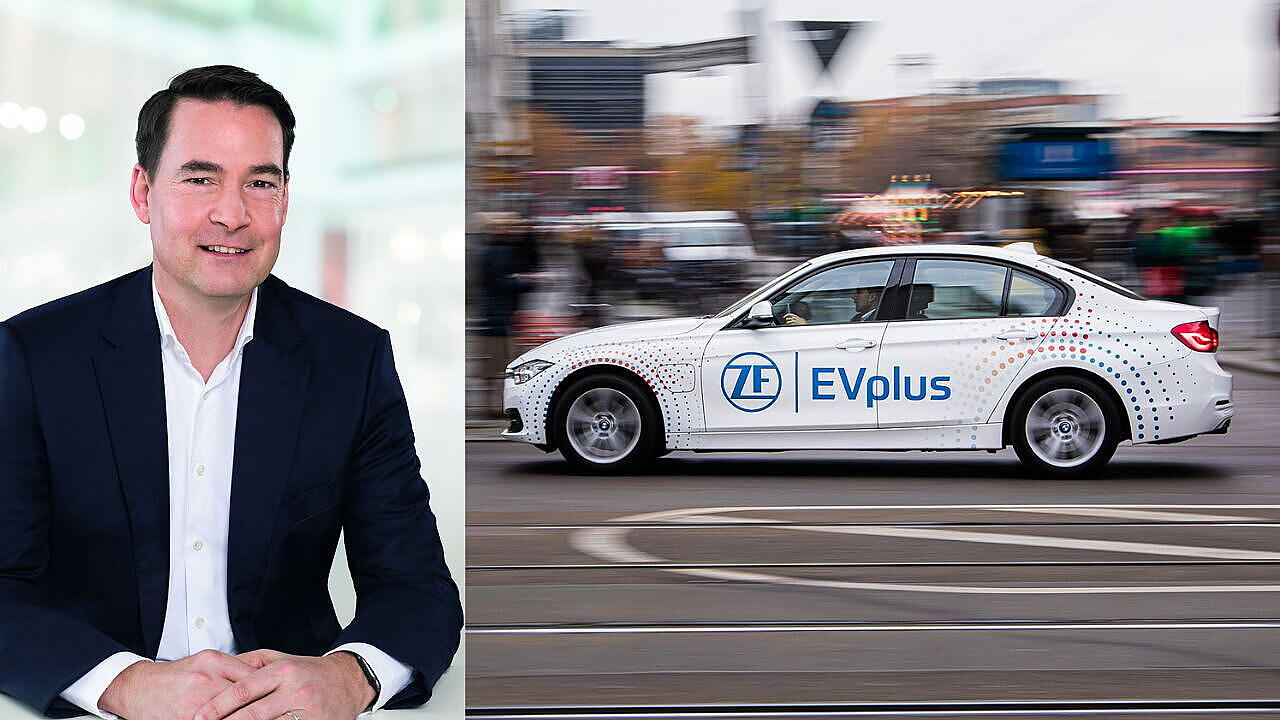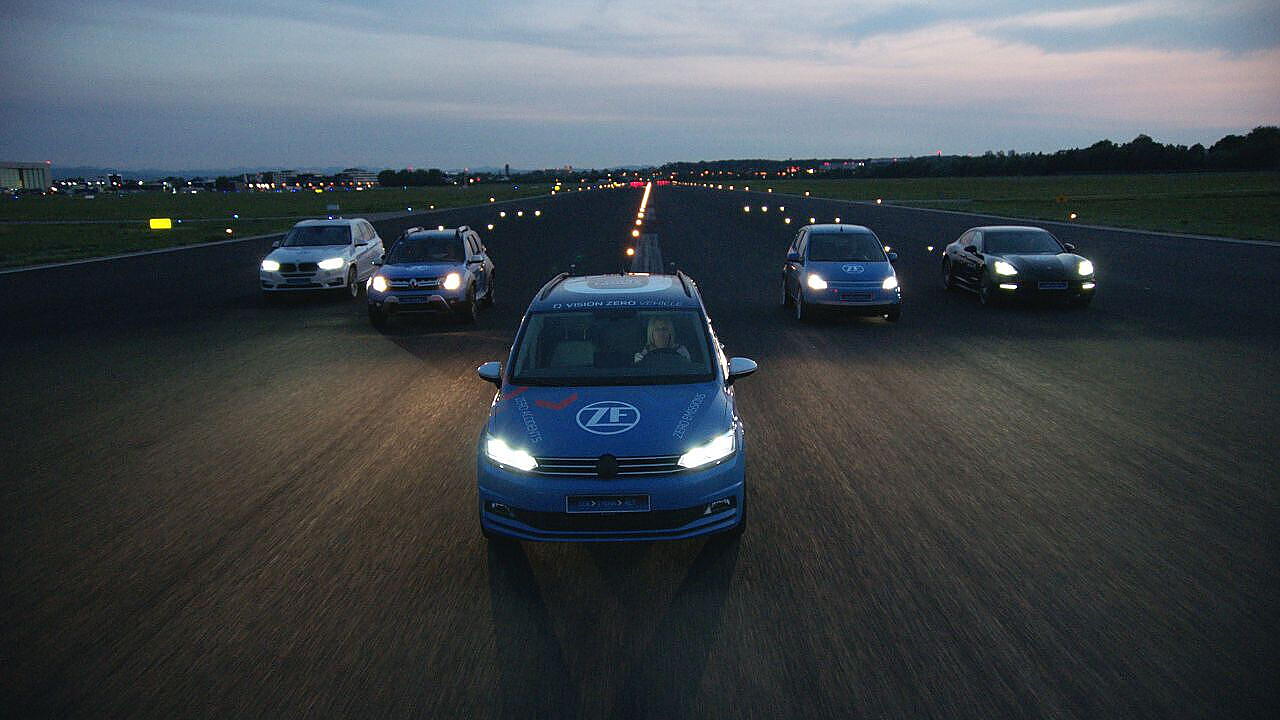
Stephan von Schuckmann laughs when asked how it is to handle a new baby like electric mobility. Pat comes the reply. “The baby is already running and not walking, which makes it difficult for us to catch it!”
As ZF’s Member of the Board of Management and Head of Electrified Powertrain Technology, von Schuckmann is upbeat about the road ahead. “The dynamics in electric mobility have changed dramatically over the last three years. We see a tremendous number of projects to be launched in the upcoming years across a range of customers and regions,” he said in a video interview from the ZF India Technology Centre in Hyderabad.
His optimism is borne out by the fact that the German auto component maker has a product pipeline of €23 billion through this decade for electric drives in passenger cars and commercial vehicles. This is where India has a big role to play and puts von Schuckmann’s visit in perspective.
Hyderabad Base
As he explained, Hyderabad has excellent engineering capabilities while other parts of the country have enough to offer in terms of software expertise. “There are over 3,000 people here to support our transformation to electric mobility. When we make products for different markets, the base here supports this engineering activity and becomes an important building block/team member for developing these new solutions,” said von Schuckmann.
Simply put, the €23 billion product pipeline cannot be developed “without our colleagues from India”. It is “truly impossible”, he reiterates while driving home the message that ZF has achieved a lot already at the Hyderabad tech centre in terms of skill sets and “we are going to build this even more in terms of competencies and responsibilities going forward”.
It is quite evident that von Schuckmann has tremendous faith in what India has to offer ZF globally. He admitted that it has been a while since he last visited the country and is now keen on meeting the team at Hyderabad and engaging with them face-to-face.
Terming the tech centre “a modern working environment”, von Schuckmann is pleased to see the levels of competencies present among the manpower of 3,000-odd people. “The skills present in software and engineering are a great support to our transformation towards electric mobility,” he added.
New Orders
ZF had referred to the tremendous strides in its electric mobility business in its first half results for this calendar. Stating that it had received comprehensive new orders for strategically important technologies such as electric drives, the management said this would help manage the transformation from conventional transmissions to purely electric drives.
“And we can at minimum compensate for the elimination of technologies for vehicles with internal combustion engines. We now aim to further expand our leadership role, for example in power electronics,” it had stated.

There are challenges to contend with, however, especially with the Russian aggression in Ukraine which is showing no signs of easing off in the short-term. There are other obstacles to be overcome like the supply chain crisis and the inflationary impact where “costs are exploding”. According to von Schuckmann, a lot of his energy goes into “managing these topics” even while ensuring that ZF marches ahead with its strategic vision.
This is essentially about the company’s strong belief in electric mobility irrespective of different demand trends across the world or what some politicians have to say about seeking a return to the internal combustion engine (ICE). “A decade from now, electric mobility will come in and there is no way around it,” he said.
Focus On Environment
By the end of the day, continued von Schuckmann, it is important to focus on the environment and, even while the transition will pose “tough challenges” to manufacturers, customers and suppliers, “we will stick to this vision”.
ZF has echoed these issues in its first half results where it expects “continuing negative influences” from inflation, the war in Ukraine, limited availability of semiconductors, new outbreaks of the COVID-19 pandemic and possible gas supply stoppages in Germany and Europe.
Despite the realities of inflationary effects being “huge” in some parts of the world, the good news is that ZF has been able to manage it thanks to “direct collaborative exchange” with its customers which has seen this cost increase being compensated. Else, it would become impossible for the company to absorb this in these difficult times. “We do all this in a partnership model with our customers while being transparent,” said von Schuckmann.
The key, therefore, is to recover inflationary effects and keep the company running while keeping an eye on the challenge of transformation to electric mobility and winning new businesses. “On the one hand are discussions with customers to recover costs and on the other are talks on new projects in electric mobility,” he explained.
Right now, India could perhaps be lagging behind China and ASEAN but von Schuckmann is confident that things are moving quickly right now especially with the Centre playing a big role in offering subsidies to manufacturers and customers. Europe and the US (especially under the Joe Biden administration) are also stepping on the gas in electric mobility which effectively means suppliers like ZF “have more work than we can handle'.
According to von Schuckmann, it is only a matter of time before customers in India appreciate the benefits of electric from a running cost perspective where it scores over petrol. “It could take time for people to realise this and once they do, things will change rapidly,” he added. This is already evident in the two-wheeler arena where von Schuckmann is convinced that the momentum will increase in the coming years.
From ZF’s point of view, the best way to handle requirements for electric across the world is in developing modular kits for different regions and a range of powertrain solutions. This is especially important when countries like China are faster than the rest and solutions will be needed every two years or even less.
While electric is clearly the buzzword now, he believes that it is important to be open to other options too like fuel cells, for instance, especially in trucks. “I do not believe in one technological solution,” he said while quickly adding that it is not the end of the road for the internal combustion engine either.
Also Read:
ZF Wins Significant Business For Its New CVS Division
ZF, Freudenberg Announce Fuel Cell Drive Partnership
ZF Has Unique Position On Products Across Commercial & Light Vehicles